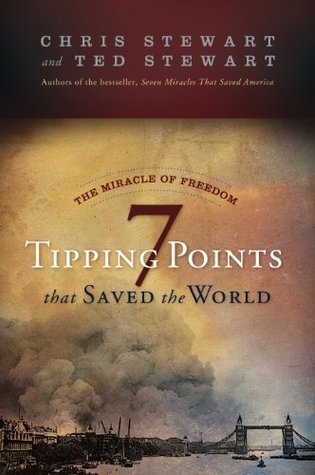What do you think?
Rate this book


How unusual is it, really, in the history of all known human experience, to enjoy the blessings of living free?
The answer may surprise you. In The Miracle of Freedom, Chris and Ted Stewart make a strong case that fewer than 5 percent of all people who have ever lived on the earth have lived under conditions that we could consider free. So where did freedom come from, and how are we fortunate enough to experience it in our day?
A deeper look at the human record, write the authors, reveals a series of critical events, obvious forks in the road leading to very different outcomes, that resulted in this extraordinary period in which we live. They identify and discuss seven decisive tipping points:
1. The defeat of the Assyrians in their quest to destroy the kingdom of Judah320 pages, Hardcover
First published January 1, 2011